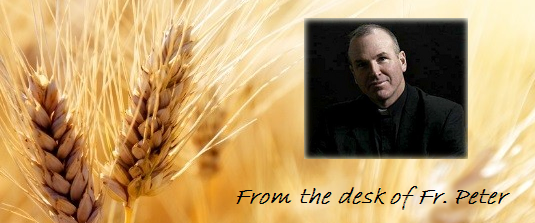Peace and grace to you!
In the first reading from the book of Exodus a set of do’s and don’t’s is established so that the Israelites may understand that God loves all people. And as God’s chosen people, these basic rules will guide them in manifesting God’s love in their day-to-day affairs with each other and with foreigners.
In the Gospel, Jesus talks about love too. When he says love the Lord your God with all your heart, with all your soul, and with all your mind, he is indicating that there are in fact different levels of love. The basic rule set forth in the first reading is the minimal level but it is foundational because it assures mutuality and fidelity in fairness. Rising from that is another level in which the lover is not satisfied with the minimum but desires to do more for the other person to show greater love and concern.
There is another level beyond the first two. It goes beyond reason or logic. It seeks to give itself away entirely for the good of the other. Some people do not understand this level of love. I am glad to say that I have experienced this kind of love between people. I think that for many of them, they don’t realize they have this depth of love until a situation arises in which they choose to give themselves in this way.
Lastly, there are those disciples who have turned to God and given themselves completely to him in religious vocations through the priesthood or religious life. Their life focus is an imitation of Jesus and Mother Mary who loved God above all and served God’s will perfectly, especially in teaching and humble service to those in need. These are good examples of different levels of human love that reflect divine love but the most perfect love that we know is Jesus’ love for all of us. He emptied himself and became a slave, becoming obedient to death, even death on a cross so that we might be free from sin.
In today’s Gospel Jesus links love for God to love of neighbor because all love begins in God and finds its way of expression in loving our neighbor as much as we love ourselves. For some of us, learning to love ourselves the way God wants us to love ourselves opens the door to loving God and our neighbor in deeper, better ways. Ask Jesus to help you!
May God bless you all! +++ Fr. Peter

